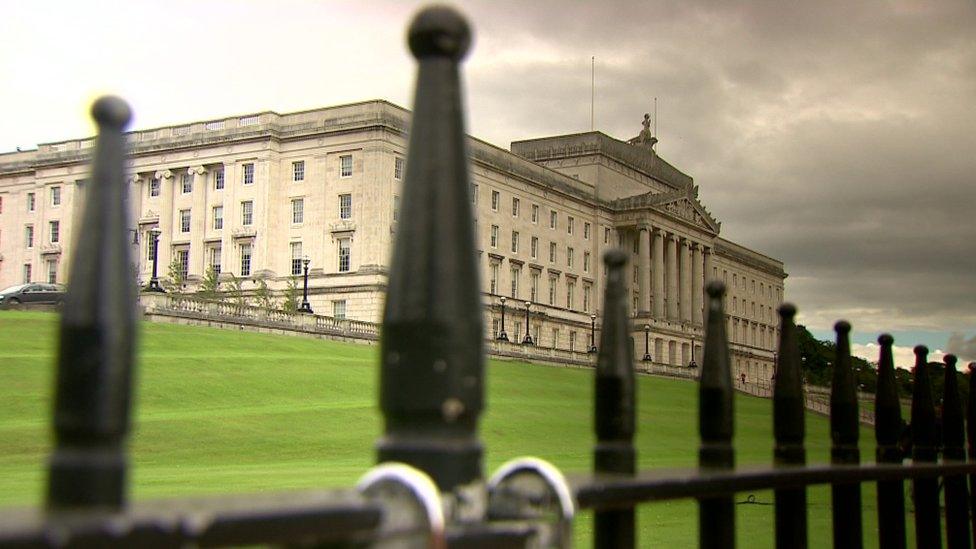Power sharing: 'Now is the moment' to restore devolution
- Published
- comments
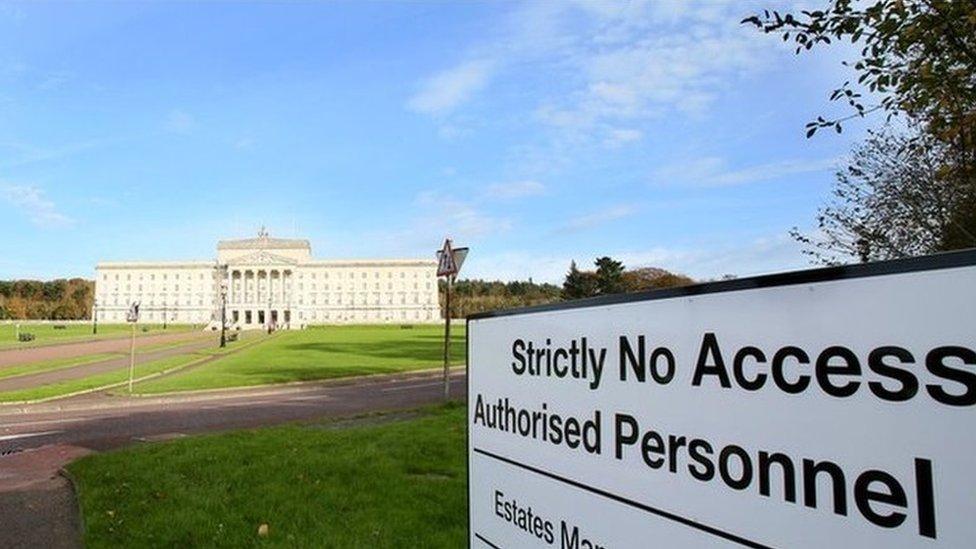
Northern Ireland has had no devolved government since January 2017
Now is the moment to restore devolution in Northern Ireland, Julian Smith has said.
The Northern Ireland secretary was speaking after talks aimed at restoring the assembly began on Monday.
The Northern Ireland Assembly has been inactive since January 2017, when its two biggest parties, the DUP and Sinn Féin, split in a bitter row.
Mr Smith said the biggest issue in the negotiations should be dealing with the current crisis in the health sector.
He met the leaders of Northern Ireland's five biggest parties.
Meanwhile, the Chief Constable of the Police Service of Northern Ireland, Simon Byrne, wrote to the leaders on Monday calling on them to agree on how to deal with the legacy of the Troubles and requesting support to hire more officers.
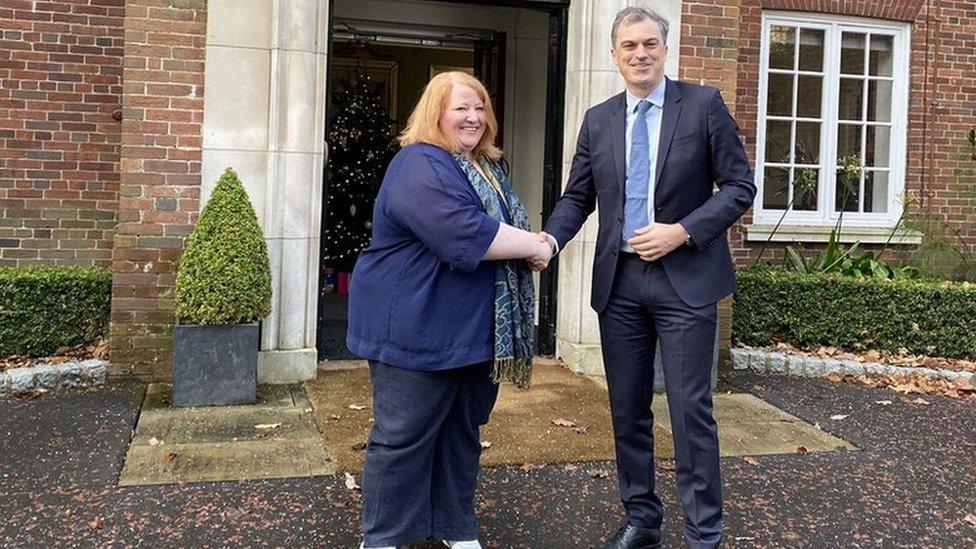
Naomi Long met Julian Smith at Stormont House
'Ready to work day and night'
The British and Irish governments will work "night and day" over the next few weeks to restore devolution, said the Tánaiste (Irish Deputy Prime Minister) Simon Coveney.
The Irish deputy PM was speaking after a meeting with the NI Secretary Julian Smith at Stormont.
Mr Coveney said there would be "intensive" discussions between the parties over the course of this week.
He will hold his own meetings with the five parties on Monday night and Tuesday, ahead of a roundtable scheduled for Wednesday.
He said the two governments did not "want to bounce" the parties into an agreement - but said they had been discussing the same issues for many months now.
"This is not about trying to force the parties into a space they don't want to move into," he added.
"But we've had a reality check with the nurses' strike, and I think it's a reminder to everyone that now is the time to get this done."
Round-table talks
Round-table talks are set to happen later in the week which will involve the parties, Mr Smith and Mr Coveney.
Several rounds of talks to restore the executive have ended in failure, with the two parties unable to resolve differences over issues such as the Irish language or how to deal with the legacy of the Troubles.
In the general election last Thursday both the DUP and Sinn Féin saw their share of the vote fall.
Mr Smith said the results had given the five parties "serious issues" to reflect on - but maintained he is obliged to call a fresh assembly election if a deal is not reached by 13 January.
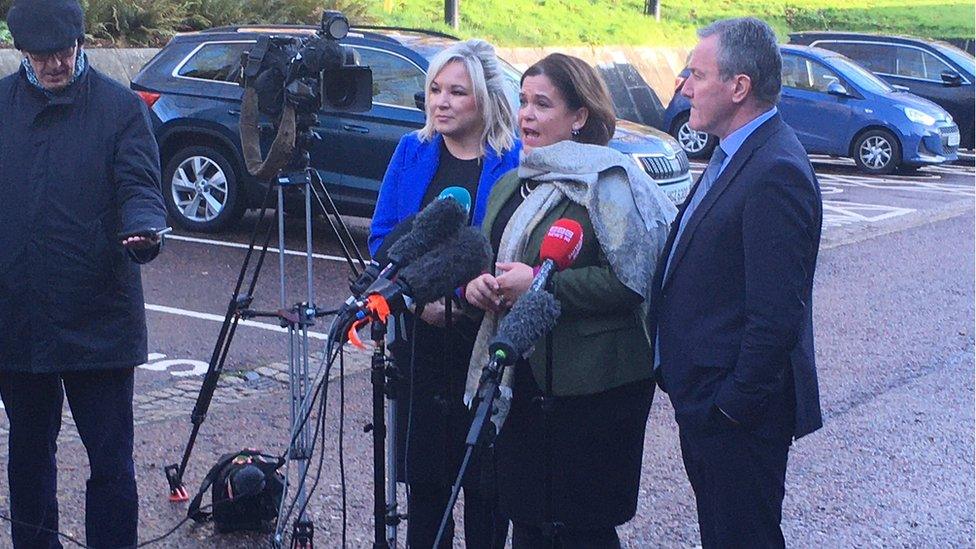
The Sinn Féin team speak to the media after fresh talks at Stormont on Monday
Speaking after meeting Mr Smith, Alliance Party leader Naomi Long said their discussion was "constructive and positive" but she added her party would not go back into an assembly that was "a stop-start mess".
Mrs Long also said there was a draft document regarding a deal but that it is not complete.
She said discussions between the parties over the next week would seek to build on it.
SDLP leader Colum Eastwood said the general election result showed people were "sick of the Stormont standoff".
After meeting Mr Smith, he said the British and Irish governments should, in the next couple of days, publish a document detailing what has been agreed so far.
"They should force the parties to say yes or no," he added.
Ulster Unionist leader Steve Aiken said he did not believe a deal was likely before Christmas.
He called for reforms to be made, and said the "core issues which undermined devolution previously" must be addressed.
'Clear message'
Democratic Unionist Party (DUP) leader Arlene Foster said she hoped there would be an assembly up and running at the beginning of the year.
She added that all politicians had to take responsibility for the lack of devolution.
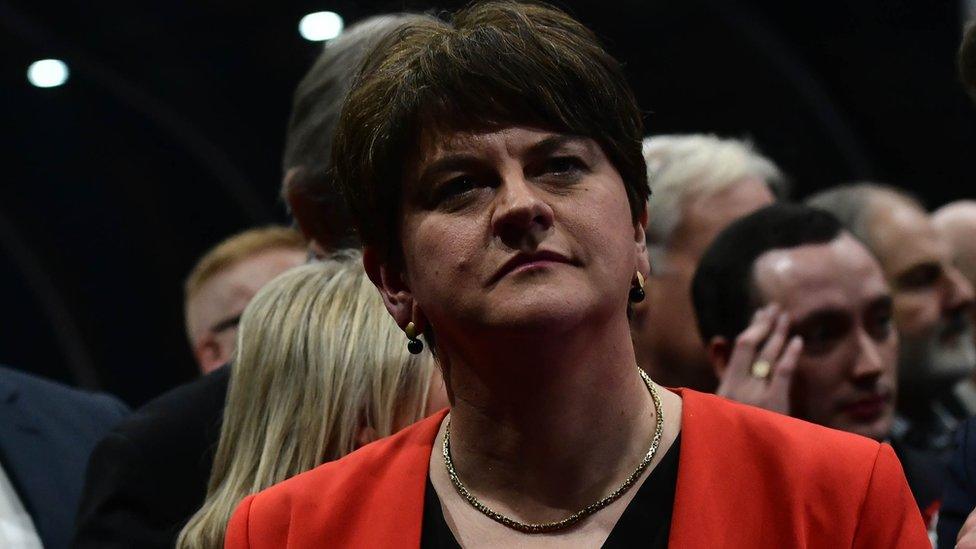
Arlene Foster was first minister before the assembly collapsed
'Pivotal moment'
Sinn Féin president Mary Lou McDonald said the Stormont talks process was at a "crucial and pivotal moment".
She said the talks needed to be about resolution and delivery, but that Sinn Féin had also asked for a "big cash injection" for public services.
She did not say how much exactly the party had asked for, or what the government's response was.
She also said her party would not be drawn into publicly discussing negotiating red lines - but would enter into the talks with goodwill.

Compromise unlikely before Christmas?
By Jayne McCormack, BBC News NI political reporter
One by one the parties emerged optimistic from talks, claiming a deal is possible.
The general election results have changed the mood, and Julian Smith maintains if power sharing is not restored by 13 January, a fresh assembly election will be called.
The DUP and Sinn Féin are unlikely to relish that prospect, and seem to be softening their respective negotiating stances.
Alliance and the SDLP say they do not fear another election while the Ulster Unionists wants direct rule, if a deal isn't reached soon.
The five parties will hold a roundtable meeting with the British and Irish governments on Wednesday, but so far it seems unlikely that a pre-Christmas compromise is on the cards.

During a phone call on Friday evening, Mr Johnson and Taoiseach (Irish Prime Minister) Leo Varadkar said they would work closely with the Northern Ireland parties to help bring back devolution.
The prime minister made clear in the phone call his top priority was the restoration of a functioning executive as soon as possible.
- Published21 October 2019
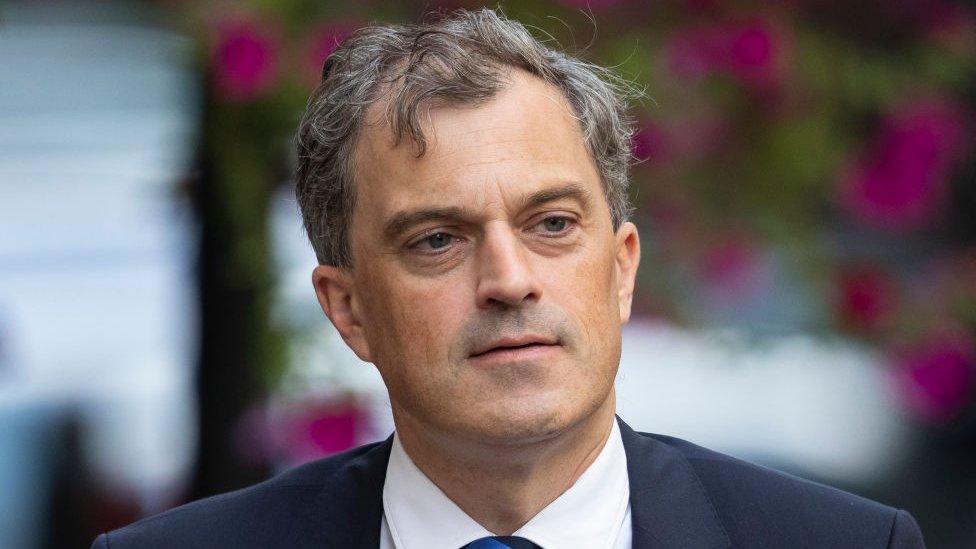
- Published7 August 2019
